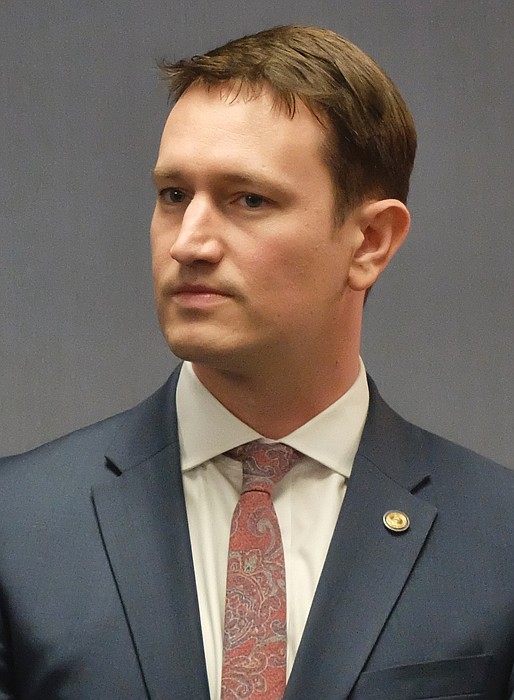City’s new homeless services plan includes opening North Side shelter, working with Salvation Army
Jeremy M. Lazarus | 9/7/2023, 6 p.m.
City Hall has rolled out a revamped plan for helping people who have no shelter.
The plan includes opening a housing resource center to better connect the homeless with housing options, expanding year-round shelter beds and providing a temporary space for people to sleep during winter, summer and heavy rains.
As outlined Tuesday by the city’s chief administrative officer Lincoln Saunders, the main element of the overall plan that still needs council approval calls for working with the Salvation Army to finally open 1900 Chamberlayne Ave. as the central shelter.
The plan also calls for the city to lease two other buildings for shelter use, including the former Richmond Hostel in Downtown and a warehouse in South Side.
Used last winter as an overflow shelter, the Chamberlayne Avenue building would continue as a shelter and also become home to the city’s long envisioned housing resource center.
To be staffed by city employees, the center would register people who need housing help and provide in-person information and referrals to connect them with temporary and permanent housing options.
“One of our goals for the center is to offer divergent services that would prevent people from becoming homeless or enabling them to be rapidly re-housed,” Mr. Saunders said.
He also said he will work with his counterparts in Henrico and Chesterfield counties on a regional commitment.
Fifth District Councilwoman Stephanie A. Lynch, chair of the Education and Human Services Committee, which will review the plan in more detail at its meeting Thursday, Sept. 14, said the proposal “addresses all the points” that the council raised in a memo to the administration.
She said she is particularly pleased the plan includes creation of a staffed center that she said would be a major improve- ment over the current situation in which homeless people and their supporters are limited to calling a toll-free number to seek help.
Overall, the plan would increase what the city spends to operate homeless services from $2.45 million to $3.2 million a year, Mr. Saunders said.
For the 2023-24 winter, the Chamberlayne Avenue building would house up to 150 people on a first-come, first-served basis during inclement weather, Mr. Saunders said.
Effective next May, the building would be split into a year-round shelter for 50 single adults, with the capacity for housing single adults during inclement weather reduced to 100 beds, he said.
Mr. Saunders told the council that the city has agreed to pay $43,000 a month to lease the Chamberlayne Avenue space, with the potential for future purchase. He said the current plan is to team with the Salvation Army to invest $15 million into the building in a few years, if the group can raise the matching funds.
He said the city would have the option in three years to buy the building from the Salvation Army for $4.5 million if the Salvation Army was unable to raise its share. The Salvation Army purchased the building in 2020 from Eternity Church for $1.75 million, city records show.
The city also plans to lease the former hostel at 7 N. 2nd St. to enable the homeless services organization Home Again to provide an additional 50 year-round beds for families. The city would lease the building for $15,000 a month for up to three years, with expectations that the new bed space could open in December.
Separately, he said if council approves, the city would lease 10 E. Belt Blvd. as a potential shelter site, though it would open during this winter. The city would lease the space for $26,000 a month, with an option to purchase the building in three years for $3.6 million.
Overall, according to the report, the total year-round shelter beds that nonprofits now operate include 117 beds for single adults and 92 beds for families. If council agrees, the number of year-round beds for single adults would increase to 167 beds for single adults and 154 for families.
Combined, that would mean 321 shelter beds, or a 54% increase over the current 209 beds at CARITAS, Salvation Army, Home Again and Housing Families First, the main providers. The total does not include the additional beds for veterans, victims of domestic violence and for those recovering from surgery or other medical conditions.








